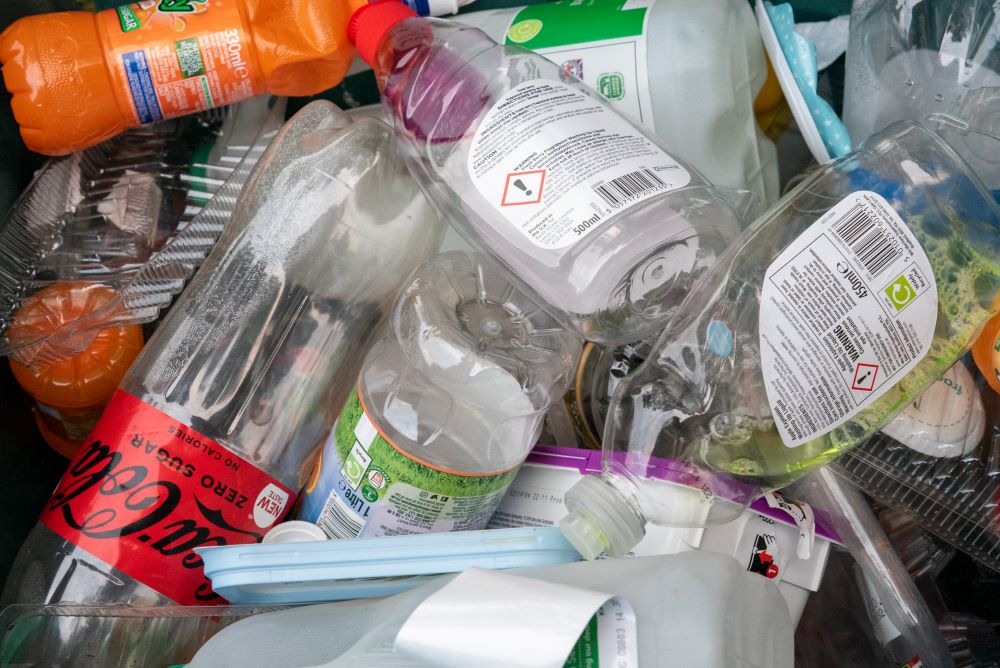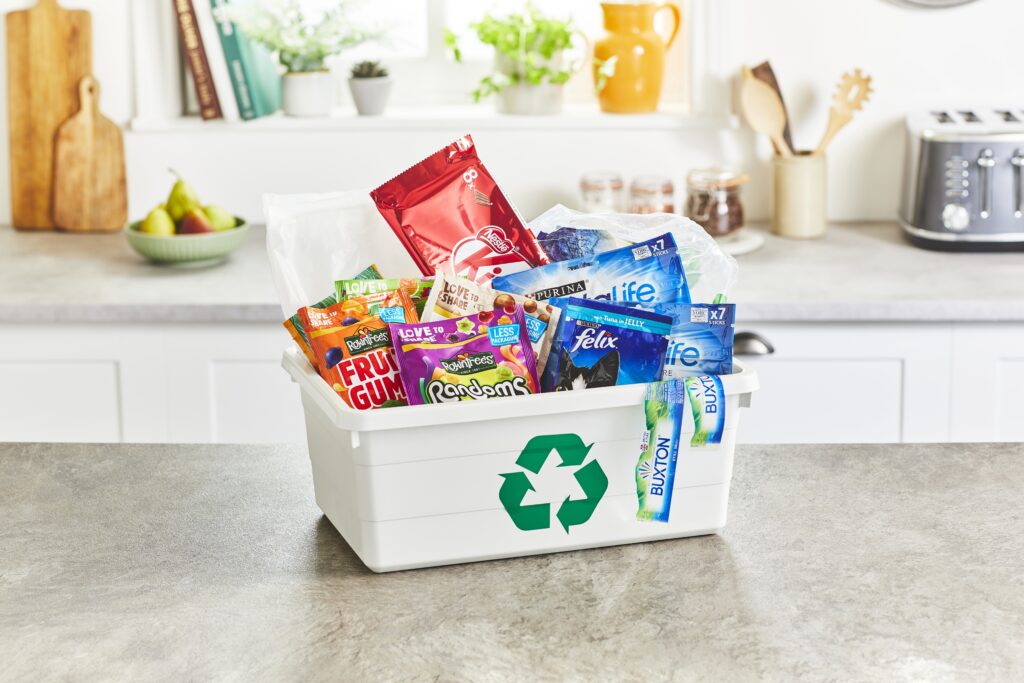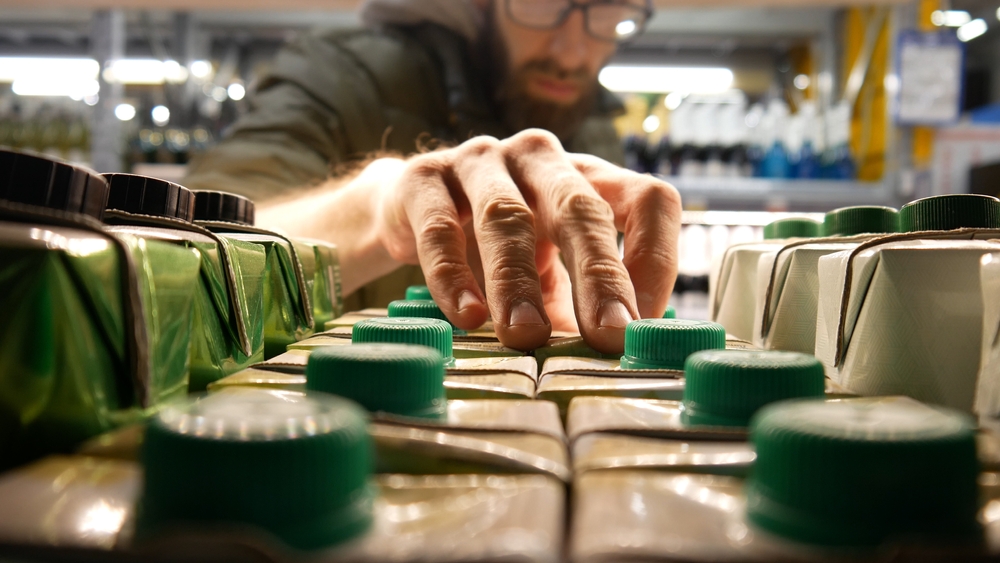Figures released by Defra earlier this month revealed an 18% increase in the amount of plastic packaging waste reprocessed in the first quarter of 2005 compared to the same period in 2004 (see letsrecycle.com story).
” It does seem highly suspicious that the UK has managed to export and additional 16,000 tonnes of material “
– Alan Davey, Linpac Plastics
The increase came through a jump in plastic packaging waste exports, since domestic reprocessing levels dropped 45,259 tonnes to 43,656 tonnes. Exports increased from 32,011 tonnes to 48,606 tonnes over the three months in 2005 compared to Q1 2004.
Alan Davey, general manager at West Yorkshire-based Linpac Plastics, said: “It does seem highly suspicious that the UK has managed to export and additional 16,000 tonnes of material.”
“People will tell you that the material being sent is plastic film from the back of supermarkets, but the retailers would have to have increased the amount of waste they are dealing with by a huge amount to bring about an 18% increase in plastic recovery. So if the plastic isn't from retailers, where is it coming from?” Mr Davey asked.
Price
Some experts in the industry have suggested the reprocessing figures for the last quarter of 2004 were also higher than expected, and that the rise in the issuing of PRNs could be linked to the rise in the price of PRNs from September 2004, when Defra downgraded the reprocessing figures.
Prices of plastic PRNs were under 10 a tonne last August, and are now selling for as high as 70 per tonne.
In the past, there have been allegations within the plastic recycling sector that packaging waste recovery notes (PRNs) were being issued fraudulently. PRNs are the documentary evidence of packaging waste recovery sold to packaging producers to demonstrate their compliance of UK producer responsibility regulations.
If PRNs are issued when reprocessing has not been carried out, or when material reprocessed is not packaging material, this is illegal and would inflate UK reprocessing figures beyond the actual reprocessing carried out.
Investigation
An investigation by Defra in 2003-04 led to the Department downgrading 2003 reprocessing figures by over 80,000 tonnes (see letsrecycle.com story), while this month saw one plastics reprocessor prosecuted for fraudulently issuing PRNs (see letsrecycle.com story).
Andrew Simmons, chief executive of plastic bottle specialists Recoup, said Defra needs to “thoroughly investigate” the plastics export figures if the plastic industry is to be sure that all the PERNs (export PRNs) being supplied are legitimate.
Mr Simmons pointed out that Defra's investigation into plastic PRNs did not cover plastic packaging waste exporters. He said: “I would be delighted if an investigation was carried out and everyone came through with a clean bill of health, but until we have results that indicate this is the case there will always be some element of doubt.
Weakness
“The bottom line is that there is probably still fraud in the system. We are not sure where the plastic is coming from – household plastic packaging provides about 10% of the market, supermarkets provide a further 70,000 tonnes, and there are other identifiable sources. But there is difficulty making known material flows and the PRNs issued balance. The limitations of market information are certainly a weakness,” Mr Simmons said.
” The bottom line is that there is probably still fraud in the system “
– Andrew Simmons, Recoup
Doug Mercer, managing director of Bolton exporting and reprocessing firm Frank Mercer & Sons, also believes that the regulators need to step up investigations into the plastic packaging waste export trade. He said: “The fact that UK reprocessing is dropping and export is growing at such a large rate implies to me that if there is any fraud going on, it is more than likely the exporters.
“Last year, UK reprocessors got caught fiddling their figures, but not a single exporter was caught – exporters need to be vigorously checked,” he insisted.
Changes
But one exporter told letsrecycle.com that the increase in exports does not warrant calls for an investigation. He said: “The material has always been there in the market, it has just taken many retailers a long time to wake up to the fact that they can save money by dealing with it properly.
“One of our customers, for example, recently increased its tonnage with us by 70 tonnes a week, just by making a few changes. That’s an additional 3,500 tonnes a year through them alone,” he added.
The exporter explained that there were big things happening in the plastic recovery industry and this was the reason why the UK's recovery tonnage had seen such a sharp increase. “I don't think there is a problem with export,” he said. “I don't even think there is a problem with plastic. No one was making these accusations last year when the price of PRNs was under 5.”











Subscribe for free